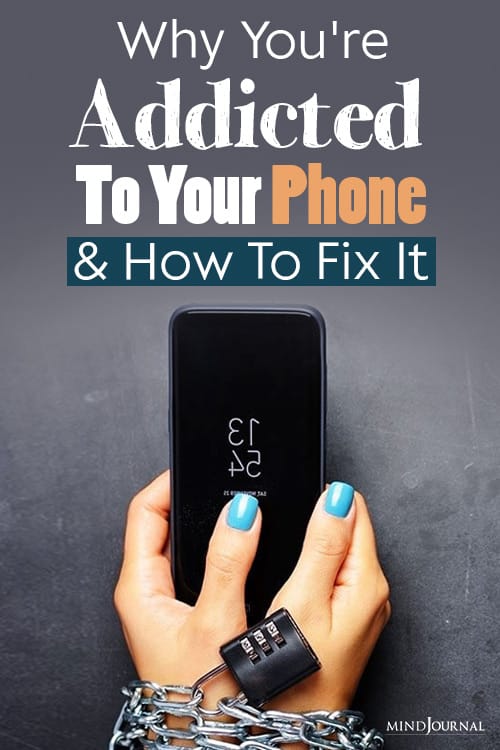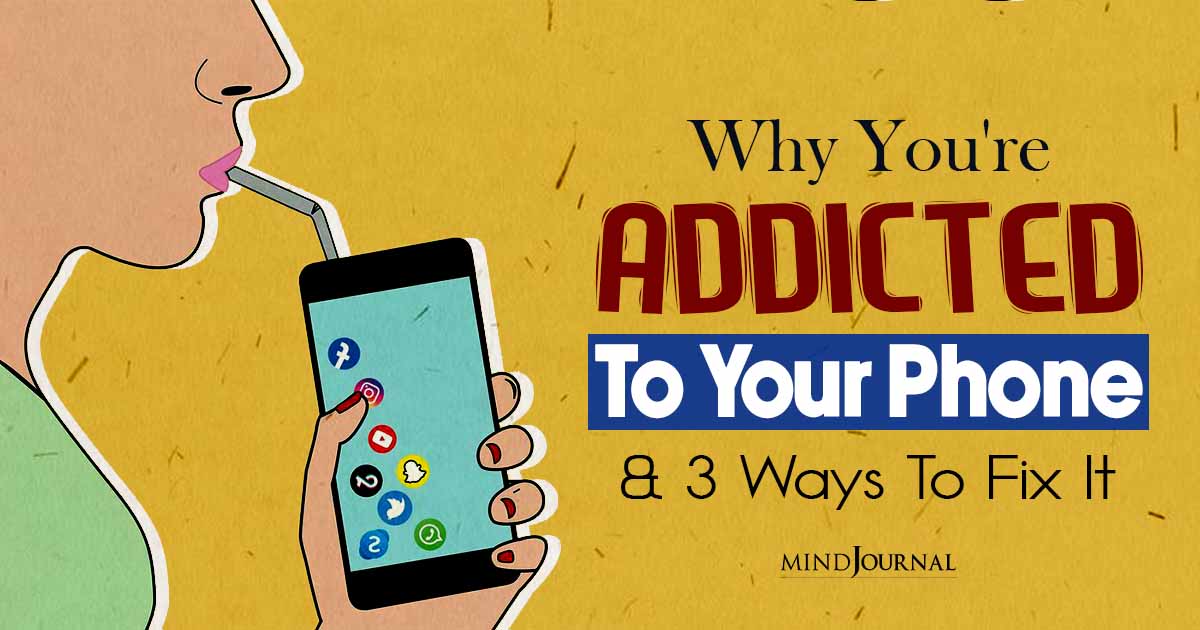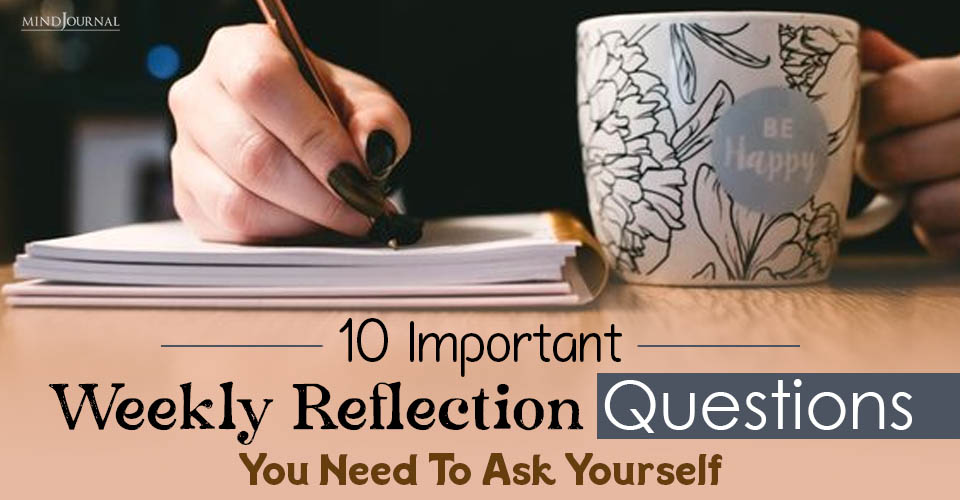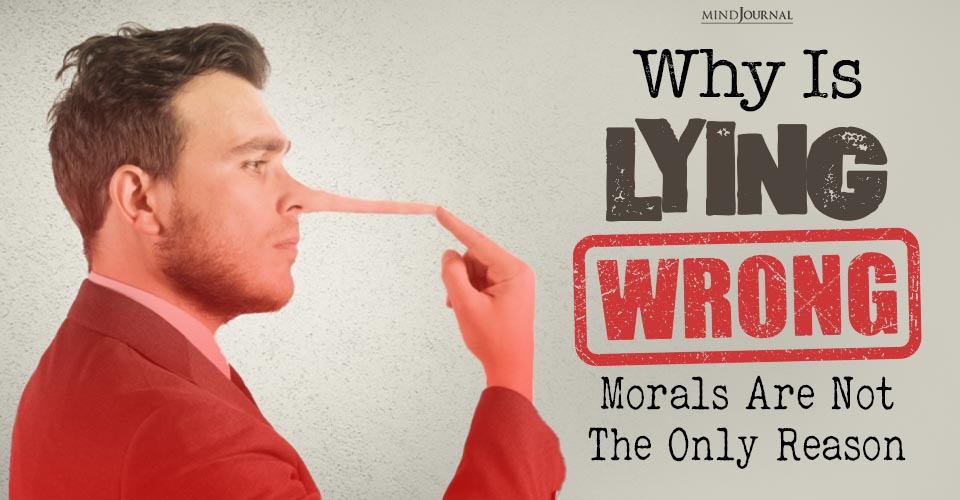Do you think you are addicted to your phone? Do you always find yourself scrolling constantly? This article is going to talk about what phone addiction is, what it means to be phone addicts and how to deal with phone addiction.
Written By Jason N. Linder
We tend to check our phones every five minutes. My friend joked the other day that he feels more naked without his phone than without his clothes! Distraction and entertainment through our phones can be one of the most convenient things of our lives, but also can be a silent form of tyranny in itself.
How often do you find yourself checking your phone compulsively and automatically? Have you ever heard of NOMO (no-mobile-phobia)? It refers to how uncomfortable it feels to be without your phone. It was coined in 2010 by a study in the United Kingdom. Let’s check-in:
How do you feel without your phone on you? What about when you can’t find your phone? Or when someone else is holding it?
Related: Internet Addiction: How Does It Affect Your Mind And Body?
Are You Addicted To Your Phone?
This problem is bigger than you. How do you feel when you get “phubbed”? This is when someone starts messaging or scrolling on their phone when you’re talking to them face-to-face.
Do you normally phub others? How does it change the quality of interaction with them? Is it fueled by FOMO (fear of missing out)? Often it is, but it’s also often automaticity and mindlessness stemming from addictive features of phone use. Have you seen families together where everyone is silently on their phones? How do you feel when you see this?
But it’s complicated If you were addicted to your phone, how exactly would you know? The “digital police” won’t flag you when you’ve met your tech threshold, and there are no age restrictions (only “helicopter parents” for a child or teen users).
Constant use has become normalized, especially in these times. Of course, this is what big tech companies like Apple and Google want, to keep us hooked. No wonder they continue to post increasingly soaring profits.
Clearly, the increase in popularity and integration of tech in daily life prompts us to ponder their addiction potential.

Where is the line from general use to problematic use? Did you know screen, phone, and internet use can trigger the same neurochemical that underlies cocaine addiction, dopamine (the pleasure chemical)?
Self-proclaimed phone addicts (this is not yet recognized officially as an addiction in the DSM-V) report feeling a pleasurable mood burst or “rush” from simply checking their phone and favorite apps.
These feelings of euphoria, even before the actual acting out of the addiction occurs, are linked to brain chemical changes that control our behavior ranging from a seductive psychological pull to full-blown addiction.
Phone addicts (perhaps most of us in the industrialized world) become conditioned to compulsively seek, crave, and recreate the sense of elation while off-line or “off-drug.”
Whether it’s a whiskey, a string of likes and comments on your post, or gambling, dopamine transmits messages to the brain’s pleasure centers causing addicts to want to repeat those actions—over and over, even if the “addict” is no longer experiencing the original pleasure and is aware of negative consequences.
So, how can mindfulness help curb our ubiquitous use?
The answer will look different for all of us. For you, what are your goals? How has it been a problem for you? Hard to sleep? Strain on your eyes? Your child is frustrated with your constant use?
You just got a ticket for using your phone while driving? You’re noticing your posture is slumping like a hunchback? You find yourself too distracted by your phone and can’t focus on work? Your partner(s) are angry with you, feeling like they are in constant competition with your phone for your attention?
Once we have a goal, then we can prioritize tracking and curbing our use using the iPhone screen-time part of the settings app. Android has equivalents.
Then, every time we have an urge to use our phones beyond our desired use, we can plan small meditations, 10 seconds to three minutes instead. Yes, they can be short! They don’t have to be sitting. You can do walking or standing meditation too.
Related: How Smartphones and Social Comparison are Making Us Unhappy?
Before you check your phone, gently ask yourself:
1. How’s my posture and body?
Personally, I can’t believe how often I find myself slouching on my phone despite attempts to have a healthy posture. Check-in especially with your neck and shoulders. Make sure your whole body is comfortable, especially when you spend a long time on your phone.
Hunching can worsen your emotional state too, which can lead to more unnecessary phone use, creating a harmful cycle. Having an erect, upright posture may be the best option. Also check in with your fingers, wrist, and arms.
Sometimes if you tune in, you may notice them in more pain. I notice my wrist aches a little and the skin on my fingers feels raw and irritated after too long on my phone.
2. Why am I doing it?
Before monitoring this, I personally found myself checking my phone numerous times without actually needing to.
I still do from time to time. If it’s not because you need to send an important message, check directions, or another intentional behavior, is it from frustration? Fatigue? Overwhelm? Discomfort? Listlessness? Boredom?
Mindfulness can help us become aware of these automatic mini-compulsions and take more effective or wise action. If it is one of the latter, perhaps phone checking isn’t the best option to get your needs met.
3. How do you feel after having been on your phone for a while? Especially after mindlessly scrolling or to kill boredom?
It’s vital to notice without beating yourself up. Big tech companies like Apple have created intensely addictive products.
The iPhone is the most profitable product of all time. Try to see your use patterns as mere data or fodder for later, to help you get to know yourself. Self-awareness is key to mindfulness. Perhaps texting friends is calming, but scrolling Instagram isn’t. It’s different for all of us.
Pro tip: if you’re interested, monitor your use for a week. Apps like “Break Free” do this. It gives you an “addiction score” based on patterns in your phone use. Having a natural background on your phone behind the apps can help too; one of nature or plants, for example.
It can also help to have a reminder putting this article into practice, such as “What do I need right now?” as your phone background so it becomes a bell of mindfulness instead of the opposite.
Related: Teens And Dangerous Levels Of Cell Phone Use
Let me highlight that smartphone use is not innately bad, but how we use it can significantly affect our mental health given its high addiction potential. Mindfulness can help us reclaim our attention in ways that serve us and enhance our well-being. As they become extensions of ourselves, changing our relationship to our phones isn’t easy.
You deserve credit for looking into this and taking care of your mental health. Do you want to be interacting with life primarily, or on a screen? Your phone can be a call for mindfulness or the opposite.
Want to know more about phone addiction and how to deal with phone addiction? Check this video out below!
Written By Jason N. Linder
Originally Appeared On Psychology Today











Leave a Reply